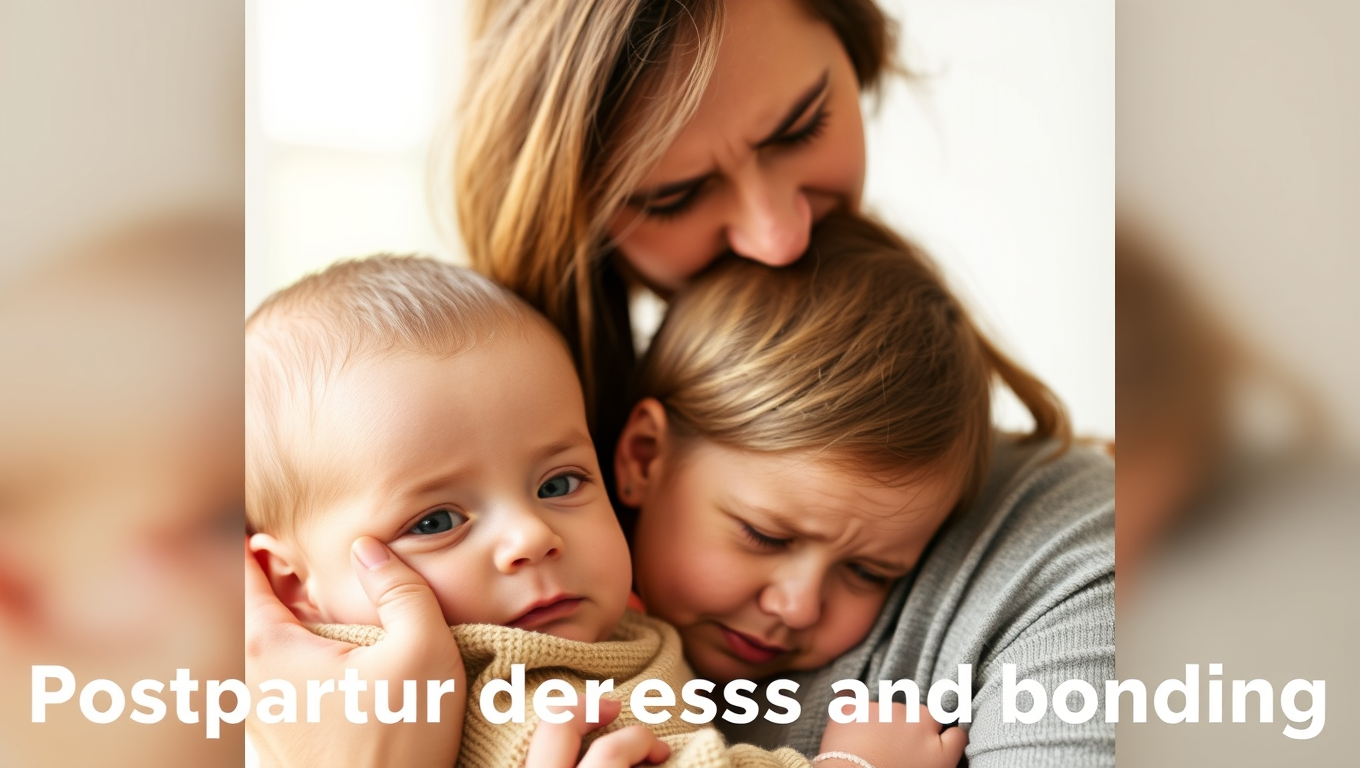While we try to keep things accurate, this content is part of an ongoing experiment and may not always be reliable.
Please double-check important details — we’re not responsible for how the information is used.
Child Psychology
The Lasting Impact of Postpartum Depression on Children’s Emotional and Behavioral Development
Postpartum maternal mental health and mother-to-infant bonding are well-established as critical factors in a child’s psychosocial development. However, few studies have explored the combined impact of postpartum maternal depression and early bonding experiences on emotional and behavioral difficulties during middle childhood. A new study reveals significant associations between postpartum depression, mother-to-infant bonding, and child difficulties. Notably, secure early bonding was found to partially buffer the long-term effects of postpartum depression on child outcomes.

Child Psychology
“The Face-Driven Brain: Uncovering the Science Behind Pareidolia”
You may be seeing faces in clouds, toast, or cars—and it turns out your brain is wired to notice them. A fascinating new study shows how our attention is hijacked not just by real faces, but by face-like illusions, through entirely different mental mechanisms. These imaginary expressions actually spark a stronger response, and the research even hints at clever ways advertisers could use this effect to grab your attention.
Artificial Intelligence
Safeguarding Adolescents in a Digital Age: Experts Urge Developers to Protect Young Users from AI Risks
The effects of artificial intelligence on adolescents are nuanced and complex, according to a new report that calls on developers to prioritize features that protect young people from exploitation, manipulation and the erosion of real-world relationships.
Breastfeeding
Singing to Babies Boosts Their Mood and Improves Quality of Life
Singing to your infant can significantly boost the baby’s mood, according to a recent study. Around the world and across cultures, singing to babies seems to come instinctively to caregivers. Now, new findings support that singing is an easy, safe, and free way to help improve the mental well-being of infants. Because improved mood in infancy is associated with a greater quality of life for both parents and babies, this in turn has benefits for the health of the entire family, the researchers say. The study also helps explain why musical behaviors may have evolved in parents.
-

 Detectors9 months ago
Detectors9 months agoA New Horizon for Vision: How Gold Nanoparticles May Restore People’s Sight
-

 Earth & Climate11 months ago
Earth & Climate11 months agoRetiring Abroad Can Be Lonely Business
-

 Cancer10 months ago
Cancer10 months agoRevolutionizing Quantum Communication: Direct Connections Between Multiple Processors
-

 Albert Einstein11 months ago
Albert Einstein11 months agoHarnessing Water Waves: A Breakthrough in Controlling Floating Objects
-

 Chemistry10 months ago
Chemistry10 months ago“Unveiling Hidden Patterns: A New Twist on Interference Phenomena”
-

 Earth & Climate10 months ago
Earth & Climate10 months agoHousehold Electricity Three Times More Expensive Than Upcoming ‘Eco-Friendly’ Aviation E-Fuels, Study Reveals
-

 Agriculture and Food10 months ago
Agriculture and Food10 months ago“A Sustainable Solution: Researchers Create Hybrid Cheese with 25% Pea Protein”
-

 Diseases and Conditions11 months ago
Diseases and Conditions11 months agoReducing Falls Among Elderly Women with Polypharmacy through Exercise Intervention





























